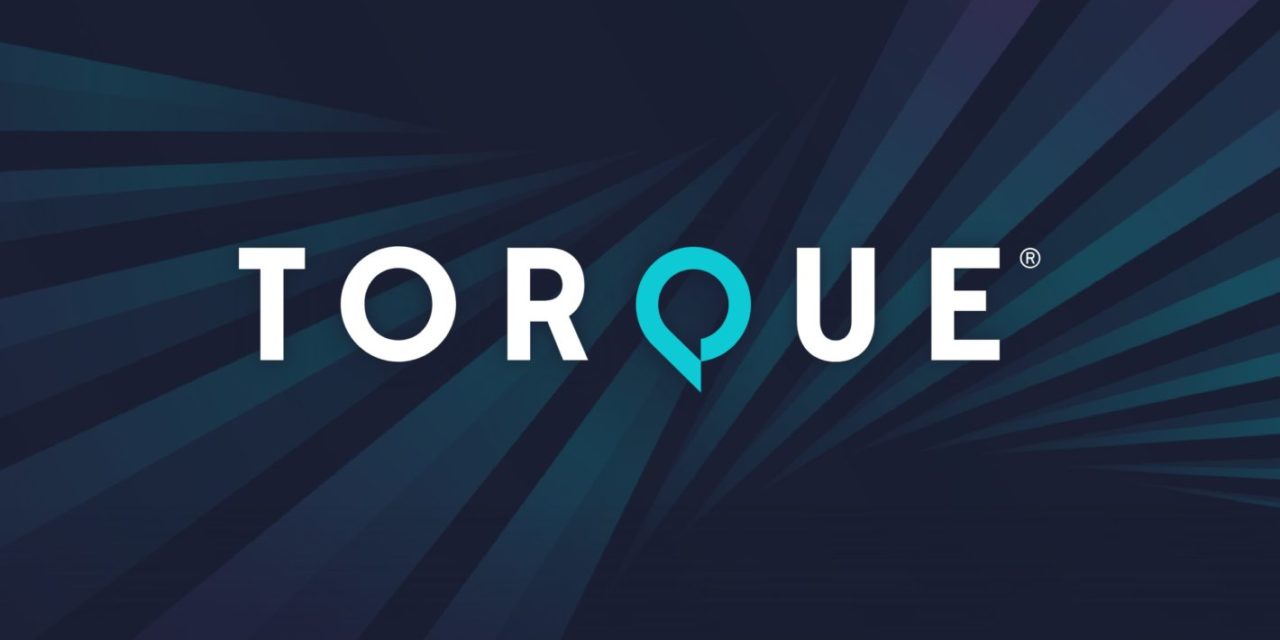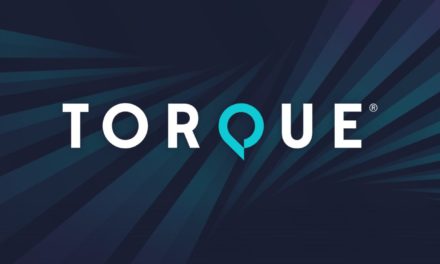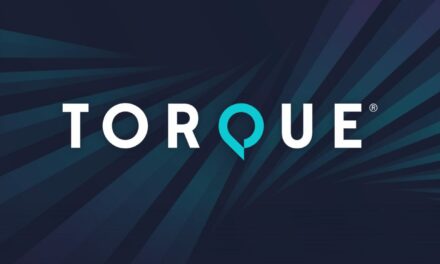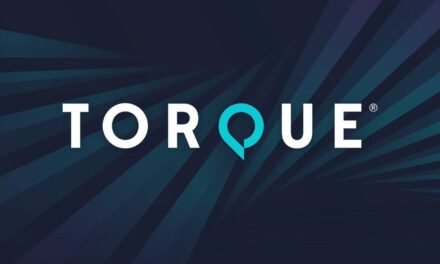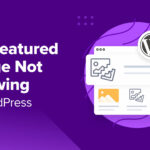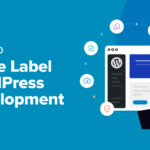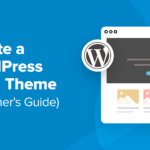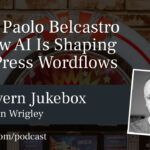Welcome to Press This, the WordPress community podcast from WMR. Here host David Vogelpohl sits down with guests from around the community to talk about the biggest issues facing WordPress developers. The following is a transcription of the original recording.
David Vogelpohl: Hello everyone and welcome to Press This the WordPress community podcasts on WMR. This is your host, David Vogel Paul, I support the WordPress community through my role at WP Engine, and I love to bring the best of the community to you hear every week on press this as a reminder, you can find me on Twitter @wpdavidv, or you can subscribe to press this on iTunes, iHeartRadio, Spotify, or download the latest episodes at wmr.fm. In this episode we’re going to be talking about the future of the pods framework blocks and page builders and joining us for this conversation is the infamous very well known Mr. Scott Kingsley Clark, Scott. Welcome to Press This.
Scott Kingsley Clark: Hey, thanks for having me.
DV: so excited to have you here I know we were talking a little bit before the recording about having a likely run into each other, you know word camps and things like that. I think I’ve ever had the opportunity to tunity to do a deep dive conversation with you so I’m kind of excited about today’s episode, but for those listening what we’re going to be talking about today is really kind of the pods framework and how, you know, Scott is one of the kind of lead contributors there and his thoughts on the evolution of the block editor within WordPress and how the rest of the contributors to pods are planning to deliver value with, with the block editor in the pods context. So Scott asked this question every guest might remember it from filling out your wordpress.org profile. But how could you help the audience help me understand like what was your WordPress origin story what was your first moment with WordPress.
SKC: Yes, so I first encountered WordPress through cPanel A long time ago it was listed next to be two. And I didn’t really know much about either. I installed it, but I deleted it because I didn’t need it for anything at the time. And then I took a job working with an agency that had modified the press corps for their own client projects and that’s when I really dove into it because of my first tasks, who did breaking those customizations out, and putting them into plugins instead. And it was one of the areas where it really gave me a really thorough understanding of WordPress and that’s when I actually really fell in love with it because I realized all these things I’ve been doing, I mean I had built my own custom managed custom content management system and in built so many other different solutions in until WordPress I didn’t realize all these things were just kind of available in just, I could build right on top of it so it was really cool. Discovery of WordPress and opening up of it wasn’t something that happened in other ways like other people might have dove into it and like they were using it for personal use. I was I dove right into the code of it and I actually had to do stuff within it, and it was a really exciting project for me to work on.
DV: Geez, trial by fire they’re like your first project is like unwinding core mods into separate plugins presumably.
SKC: Yeah, I realized it was a big no no. It told the cut of the agency hey we should bring these out.
DV: That’s That’s funny. It’s also here. It’s also interesting to hear you talk about how you were kind of using like homebrew kind of platforms and frameworks. But then, like seeing what something like WordPress could do in terms of efficiency and being like, geez I don’t need to maintain all that other stuff. It’s very appropriate as we talk about pods here. I do have one like side question though. You said you were in cPanel and you saw WordPress next to be two. I’m presuming that you mean to be two that WordPress was originally forked from Is that true or do you.
SKC: yeah, I mean that that was the original one here with this been. Oh, I started doing web stuff, like in 2000 2001 like doing geo cities and then eventually I had like mountain, like kind of my own hosting company and I was using cPanel reselling. And I was just diving into cPanel scripts that I was like trying to find you know what we even have here. I just saw it there. I really don’t know what year that was but I am pretty sure they were both lists at the same time. It’s possible. It was just be two at the time, I just can’t recall exactly I thought it was both WordPress and v2.
DV: Yeah, it’s interesting I did an interview in a different context with Mike Liddell the CO fac co creator of WordPress I’m sure you’re familiar with him. And he was telling this story about Michelle. And in a sense of vanity v2, and that being the kind of spur for Matt to call for people to volunteer to help him fork it and maintain it, which is what we of course now know is WordPress. So that’s why I’m just really curious about like how you saw them at the same time, maybe that’s a topic for another day. Alright so let’s talk about pods, what is the pods framework.
SKC: Like, it’s always so hard to to describe it. So I wrote it down. It’s a content type development framework for WordPress it’s a free plugin. And it’s powered by donations through a donation program called friends of pods. It allows you to create content types for WordPress like new custom post types new custom taxonomies. It allows you to create entirely new tables inside of WordPress but outside of the normal WordPress paradigm so they’re called Advanced content types and allows you to kind of make diagram these Basically, these, these new content types with the fields that you want to specifically so you get the fields you want the table and that’s it. And then it allows you to build things within WordPress through our framework in a way that actually unifies all of the functionality so you can build things for those those common types the same way as you would interact with a custom custom post type or a custom taxonomy or users or media or comments any of those things, you can actually add fields for within pots and these is a really cool thing that we actually kind of trade and treat them all equally inside of pots in a way that is unique to pots and it’s not really seen anywhere else, our API. At the heart of it. It treats them all as equals. In, I think that what that’s what gives us a really, really awesome feature set.
DV: How would, how should people think of the difference between say something like pods, or pods and something like advanced custom fields.
SKC: That’s good question, advanced custom fields, is a very very popular plugin, millions of installs, and I’m excited that that is a thing. pods was the first plugin out there before, advanced custom fields that was actually working on custom post types and it was doing some things that were really groundbreaking at the time. It wasn’t the very first custom field plugin but it was definitely one of the very first front liner plugins out there that was doing stuff. And even though it was one of the first it’s not the most popular. And I think that’s because it is, it’s more of a holistic solution. So, advanced custom fields allows you to add custom fields in groups of fields to any content type in WordPress such as you know post types and taxonomies and users and even there’s Gutenberg integration now. And there’s some really cool parts of that, I mean it really keeps it concise and focused and it makes easy to understand, I just want to add a custom field to this, this place, and I just add my custom field messy where I want to show up. And that’s really a big benefit it keeps things simple. The design is simple interface, it, it’s very much simple but at the same time, extremely powerful for the people that use it, it’s actually a gateway to people who end up using pots, because they realize they want certain things out of advanced custom fields that it doesn’t provide, and in some cases we actually have people that use both advanced custom fields, and pots or other solutions as well. And it’s it’s interesting because pods is a lot more like I said holistic and treats things as a content structure. So we’re not thinking about an individual custom field that you need we’re talking about a whole content type, and what fields, it should have. So instead of thinking about I need to add a, a ispm number two my post type in advanced custom fields, I can say well I want a book post type and I want an ISP number I also want all these other things and I can organize these things in ways that it makes sense to the person filling out data, as well as the admin who’s maintaining the structure.
DV: That sounds like just to kind of recap that we have like again ACF is kind of an adding fields to my content types, but it’s like pods kind of takes that one level up. Also facilitating the field part, but really thinking about it and kind of like the, as you mentioned, like this advance content types approach, if you will, which sounds really interesting and it’s a really good distinction I had not really thought to ask that question leading into this interview, but I’m sure that’s on people’s minds, if they are familiar with ACF. So of course, like, I’m sure, with other similar to plugins in the ecosystem as Gutenberg was coming out, it was like, What are these things going to do with the block editor, like how are they going to work with it are they going to be replaced by it like these kinds of questions. You know we’re coming up a lot, really, of course as the block editor was being rolled into core. We’ve seen people kind of react to that over time. I want to dig a little bit more into this course, we’re gonna take a quick break. We’ll be right back.
DV: Everyone welcome back to Press This WordPress community podcast on WMR. Scott Kingsley Clark about the pods framework and its plans for the block editor. Scott right before the break you were explaining a little bit about kind of the fundamental nature of the pods framework, essentially being a plugin which enables you to create advanced content types with specific strategies and kind of this unified data type approach I’m putting some words in your mouth, but help me understand like just just for clarity, who’s the hero customer for pods is it developer novice developer with a certain set of skills, help me understand who the turnkey revenue user is.
SKC: Sure. So so pods is like a map of a site and you can kind of design the streets you want in the houses you want to be on those streets and you can kind of plan out your whole city had like a SimCity of plugins. But the person that benefits, most from pods can often be someone who’s not even very experienced with WordPress and coding, and a lot of cases, but also at the same time we’ve got some very advanced features for developers, things like that. Like I said advanced custom content types is a very specific feature that allows someone to build a whole table and fill it with whatever content they want and the fields that they want and link them together with other advanced content types and there’s some really cool parts of that. But that’s that’s the thing that’s an optional that you turn that on, if you know you need it, but it’s not something that most of our users utilize, so there’s, there’s a there’s a pretty distinct line between our types of your users, it’s, it’s not as much as I would say like a plugin like advanced custom fields would have a hero user just being anyone like you really could be anyone and you can build a plugin, or build a site with advanced custom fields in, and you could also be a developer at the same time. And that applies to pods as well, but maybe more so for pods developers have a lot more to work with. We’ve got a really extensive API, we’ve got extensive advanced features like table storage, you could take your custom fields for a post type and make it store the table, and instead of just an a meta table, things like that and we have powerful UI interfaces that you can do so that there’s some really cool stuff that developers can make use of and a lot of people end up seeing pods, as a developer centric plugin, but it’s really not it we tried to limit those things and put those things under Advanced section so. So we really could be used by anyone and if you know what you’re doing in terms of development, you can take advantage of these extra features.
DV: So this sounds really familiar Scott sounds like WordPress itself actually this paradigm between making it easy for novices but extensible and customizable for developers so that’s awesome. So, before we got in that last break that is kind of alluding to the fact that tools like pod frameworks like pods that deal with fields and post types as the block editor was coming out like there’s all this discussion like what are these things going to do with the block editor. So help folks understand like what what what have you completed today like how does pods work with the block editor like right now. Engineers builders for that matter I gots it that matters.
SKC: Yeah. Oh no, it totally matters, there’s a lot of stuff, a lot of complications with block editor Gutenberg for years with page builders for years. And there’s a lot of things that have to be taken into account. So, as it is right now with pods as on production wordpress.org, we integrate with block editor at a basic level so your custom fields will show up in the block editor. The same as they would show up in the normal classic editor and page builders have some integration with custom builds and that extends to pods in some places but you do have a new extension it’s free for pods, called the pods Beaver Builder theme or add on. And it integrates with the Beaver Builder beaver femur feature set, and it’s a really cool extension of their, their solution I’m a big Beaver Builder fan. I honestly wasn’t had no idea what Beaver Builder was or how to use it before Bernard who donated his time to build this integration started it in, when I got into it. I still wasn’t sold on it, and then the page builders summit happened. I don’t know if you are familiar with that one but the page builder summit was really cool it had some really great content in it and I, as part of my presentation I went over all the page builders that could find. And, and I realized the Beaver Builder integration was was superb and I really enjoyed working with it after that point, but that led me to finding a lot more to build on for pots. And so over the past two to three years, at least for Gutenberg side. I’ve been exploring some really interesting areas of Gutenberg that have been limited because of API functionality that just didn’t exist yet. Until recently, there still was not a whole lot of extended extensibility. And as you can see from advanced custom fields they’ve been building some things off of some of the more. More recent API’s that are available for Gutenberg and the block editor. And that is where we’ve been going as well so we’ve got a lot of really great stuff built in ready to be released for the pods 2.8 release that is about to go into beta. But we also have some really cool page builder integrations that grew out of my page builder page summit. Page Builder summit presentation, when that includes more extensive integration with Beaver Builder and beaver Beaver, more extensive integration with the oxygen editor, the Elementor Pro editor and I’ve been looking at Divi integration as well so there’s some stuff that kind of unlocks a bit more integration with those things and I’ll be leasing and it’s actually going to be something that I’m, I haven’t really announced yet. Should I announce it now.
DV: Oh, totally, but maybe we could hang on to that though because I want to ask you one quick question about the features you have right now. And then what I’d like to know is like what do you what are you going to be releasing so very appropriate. And then you have to have on deck and then maybe what you have planned for the future how’s that work Scott. So you mentioned that today you have kind of the custom fields created with pods available in the block editor. How are they available are they fields you would add to your custom block or they have locked themselves, are they part of the page on the bottom like help me understand like how that works.
SKC: sure they’re they’re part of the normal metal box integration at the bottom, and they’re integrated with the block editor in ways that just ensure that they still function the same as they should. On classic vs block editor. So the JavaScript side of it is not going to conflict and it’s not going to have these weird issues in terms of functionality. The great bit of work we did for particular name allows us to take that much further and actually build blocks, and we have a whole blocks. php API is holding the job, as well as the JavaScript API so like you don’t even have to know react to build blocks anymore with pods and you can do some really cool stuff there.
DV: That’s what you have on deck that’s what’s alive right now.
SKC: That’s what’s on deck, and that it’s it’s humongous big feature it came out of necessity. We didn’t plan on having as part of pots 2.8 but there was a lot of work. work done in react for the release, and we were in there and we just built it, I spent a lot of time, and I don’t get paid for my time working on pots, but it’s a, it’s been a big amount of time that I’ve donated in terms of. Although this is so much as donated but I just, I really, I really enjoy working on parts. That’s a fun thing my full time job is working for modern tribe, I build plugins products for modern tribe I’m the one of the lead developers the product developers there, and I work on event tickets platform that they have
DV: didn’t actually know that getting into this ship love monotribe, Shane did all them for Peter. Four years ago so I’ve been working with recently. I’ll think of it later she was actually recent guest I can’t recall her name off, and also just work with tribe. That’s super cool. So, basically within pods though. In fact, I guess those listening that might be unfamiliar so if you’re creating a set you get pods fundamentally, originally essentially it was around creating kind of this kind of special content types would be like essentially a page on the back end with custom fields that you can fill out. And then what you’re saying now though is instead of only creating, in a sense, those kind of content types. You’re also providing the ability for folks to create blocks. Does that sound right.
SKC: In pods 2.8, we do have that feature to build those blocks it’s not an interface that you are utilizing from the admins side yet it is all currently something that is part of our expanded feature set for developers, it’s something that will be coming with an admin interface as soon as we you know we have to get some stuff out first, and then we can continue on building more stuff. Yeah.
DV: So Scott just to clarify, phase one basically the new part of 2.8 will be an interface for developers to build blocks with maybe like DIY features coming later does that sound about right.
SKC: Yeah, yeah, that’s totally right the the developer centric stuff, we’ll have, we’ll have some actual great examples that non developers can utilize to build these things, and it’s it’s really cool but also, I spent a lot of time building generalized blocks, so it’s like little block tools that you can use, and you there build pods blocks, and they leverage a lot of the cool features that we built for our widgets and our shortcode in a way that is integrated with the Gutenberg block editor, and so it’s very extensible very clean and easy to build a lot of really cool
DV: pieces of your content. That’s awesome. I want to talk to you a little bit more about the how, but we’re going to take our last break. We’ll be right back.
DV: welcome back to Press This WordPress community podcast on WMR this year is David Vogelpohl and speaking with Scott Kingsley Clark, about the pods framework, and the block editor Scott before the break you essentially announced pods will be releasing in version 2.8 thank you for doing that announcement on our show. Essentially block creation capabilities and you talk a little bit about how kind of v one is developer focused, if I’m a WordPress developer, you said I didn’t have to know react to to use kind of be one of block creation within the fonts context.
SKC: Yeah, actually, you don’t use any react in in the new blocks API for pods, we have a purely PHP based solution that is consumed by our extensive react JavaScript code. And it’s really cool because you don’t have to know JavaScript or react to do it, it, you might be familiar with advanced custom fields, the way they do it it’s very very similar and in fact I built it in a way that’s compatible. So, anyone who’s coming from advanced custom fields will be very familiar with at home, as well as they’ll get the benefits of all the extra features we already have in pots so there’s some really cool parts there that let you build those things you just say, I’m building a block that has these fields to enter in and then you have a view that it attaches to, and you just output your content, the way you want. The way you have it set for your theme
DV: that’s great you know it is interesting to see these kind of non react based block building tools, coming to be because I remember I don’t know if you were in Philly every camp you asked when when Matt said learn JavaScript deeply. Yeah, there was two people in the back that were like yeah whoo and everybody else was just like dead silent one of the two people in the back was Zack Gordon, I’m sure. But I’m almost certain it was, But you know there’s this gap, this knowledge gap for WordPress developers I know you did this around react and hey look like, you know, PHP, a little bit of JavaScript isn’t HTML, CSS for personal comfort zones, but not react to something they haven’t where it’s interesting to hear you say that, but also of course right now block creation was fundamentally the domain of developers talked about maybe having a, like a wiziwig or something for creating a block I’m you understand what you have planned there. Sure.
SKC: So the first part of that is, we’re building an add on that we’ll be providing that allows you to build a sculptural block. And then once we’re feeling it’s really good and high quality we’re going to merge it into the pots core plugin, but it will allow you to create the block and add the fields in the way you want and do those sorts of things. The other side of that is we have our utility blocks, and they’re the pod specific blocks so we’ve got a pods block that lets you list content out for any content type in pods, you can pull a single item out and show certain fields, you can show a specific field from one item, you can show you can actually embed a view from your theme right into your content, which is really beneficial especially if you’ve got a lot of stuff in your theme version control, like agencies do very beneficial you can just tell them to include a view or you can, you know, build a custom block on top of our utility box to kind of wrap those things around. So there’s some really cool parts there that that really allow you to add content and embed things from other areas into your block content just using the framework that pods provides.
DV: That’s awesome. Thank you so much for providing this details My last question this is maybe a maybe give me the quick answer on this one. But if you if you first of all thank you so much for sharing the update on 2.8. But relative to the block editor itself like it sounds like you’re adding a lot of features within pause to kind of augment and make it better. What’s like the top thing on your wish list for improvements the block editor itself.
SKC: If I were to go into WordPress core and say I can make anything happen I would say the block editor. In this goes to your previous point about react and JavaScript learning and deeply. I believe yes developers, learn JavaScript react deeply However, at the same time. What about all the people who can’t. People who don’t have that ability who don’t have the resources and who don’t have the funds and who are just trying to get a job and they are maybe they’re being pumped out of a job because they can’t learn react, for some reason, all sorts of reasons that people don’t learn certain pieces of technology. And I think we really could have done a much better job, and connecting those dots. I think you could have done a really fantastic job if we had had some more PHP API’s that connected those whose things outside of Oregon, and the things like advanced custom fields and pods and in must be 10s, maybe 100 different block builders for PHP out there.
DV: don’t be WordPress right that open ecosystem is that if we take a path that makes people comfortable there’s often those contributing ways and kind of bridges, if you will, to take advantage of that, that new value. Well, Scott. This has been awesome. Thank you so much for joining us today.
SKC: Look, I’m very glad to be partnered up.
DV: Great. If you’d like to learn more about what Scott is up to you can visit pods.io. Check out the pods framework and they’re, soon to be released new block building capabilities. Thanks everyone for listening to press this WordPress community podcast on WMR, and this has been your host David Vogelpohl, I support the WordPress community through my role at WP Engine. I love to bring the best of the community to here every day.

